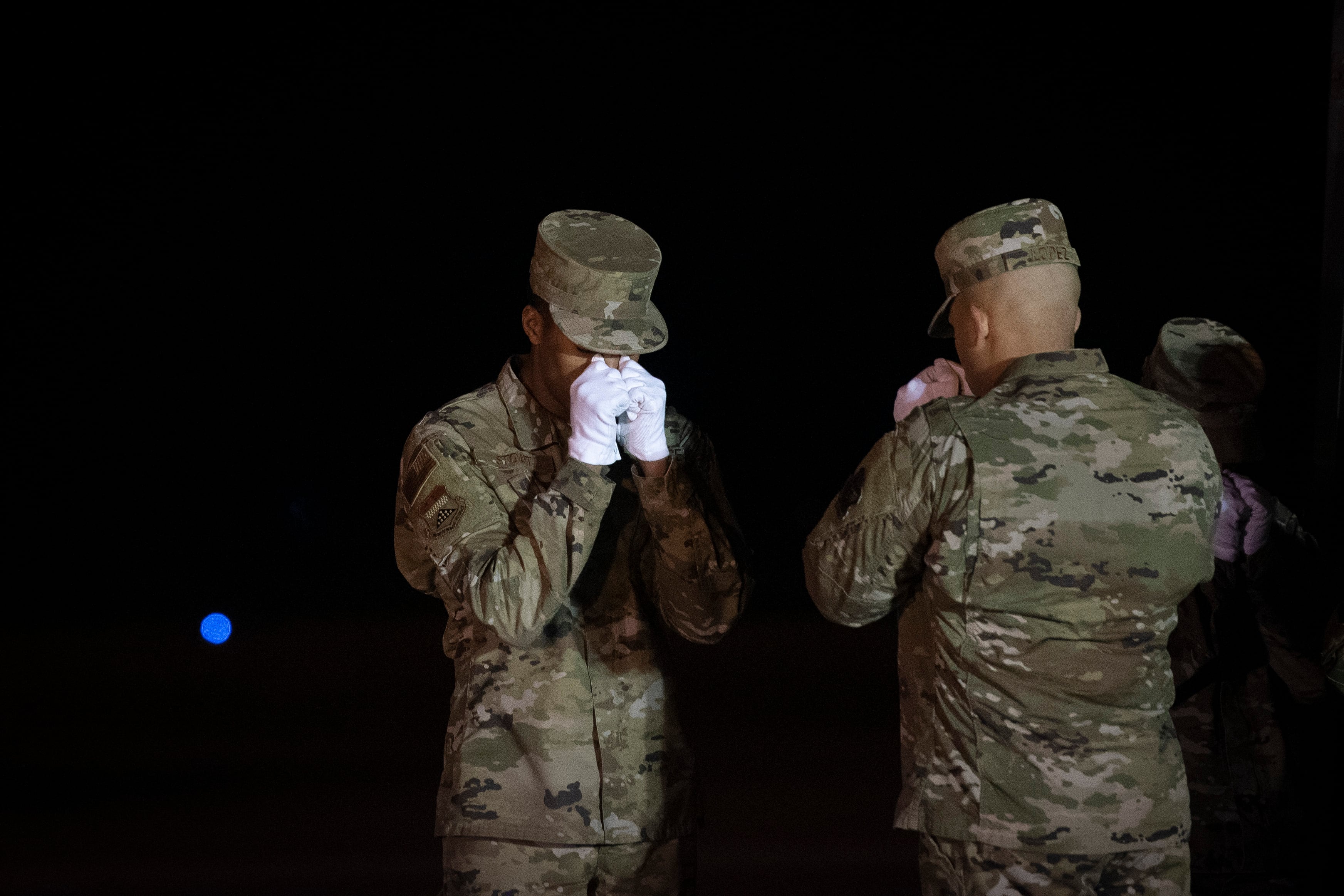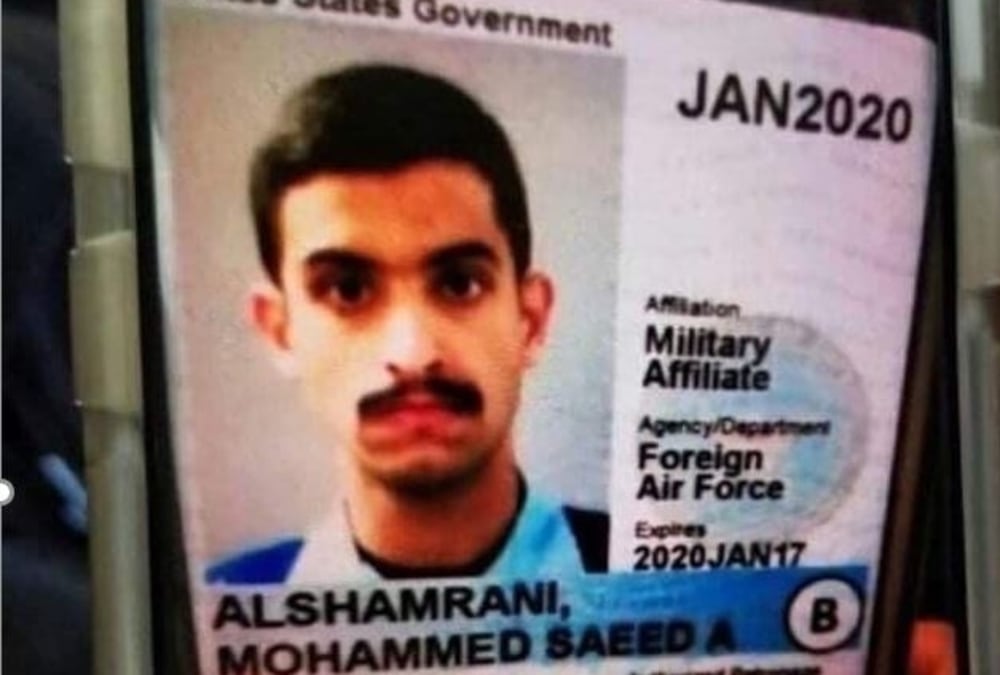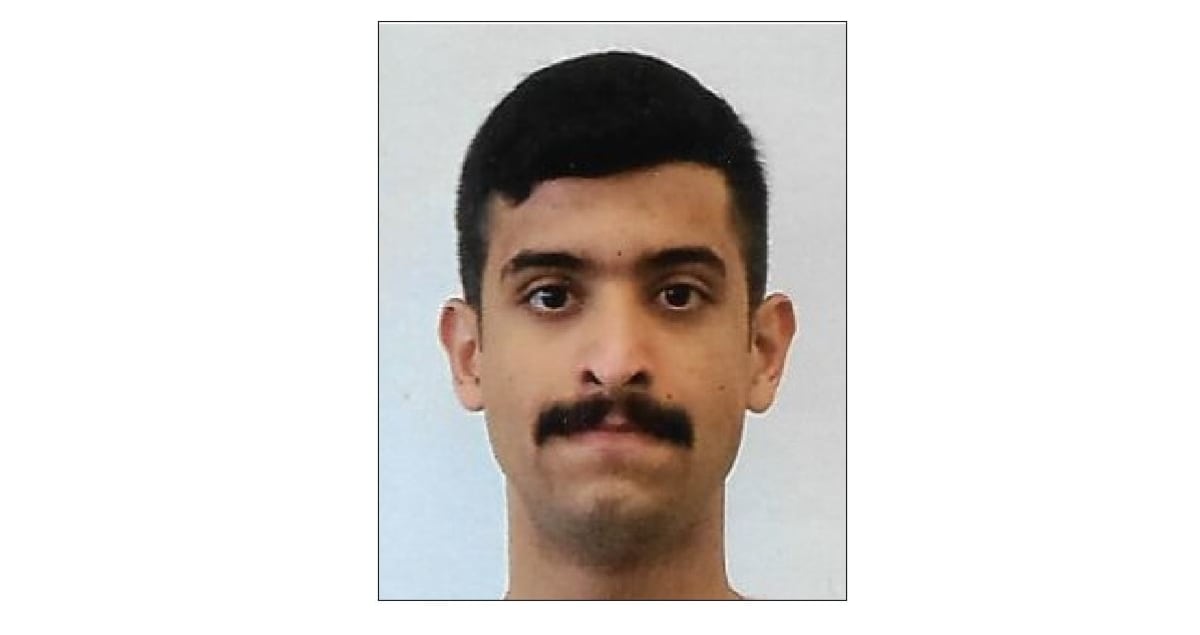When he applied for his hunting license earlier this year, Saudi Air Force 2nd Lt. Mohammed Alshamrani gave the Florida Fish and Wildlife Conservation Commission the address for an aviation training command on Naval Air Station Pensacola.
Navy Times received a copy of the application after filing a public records request. On it, Alshamrani listed “230 Chevalier Field Road” as both his physical and mailing address.
But there doesn’t appear to be a “230 Chevalier Field Road” inside Naval Air Station Pensacola.
There’s a similar address — 230 Chevalier Field Avenue — which matches the location of Naval Air Technical Training Center there, but the permit application failed to specify a barracks, the headquarters, a classroom or any other building on the sprawling air station where Alshamrani resided.
FBI has not said if Alshamrani lived on base or off, nor have they named the building in which he massacred three sailors in a classroom before being gunned down in a shoot out with local sheriff’s officers early Dec. 6.
Eight others, including two sheriff’s deputies, were wounded in the rampage.
FBI and Florida officials told Navy Times that Alshamrani legally purchased the murder weapon — a Glock Model 45 9mm pistol — from a Florida gun dealer on July 20, nine days after the state granted his hunting permit.
Federal law normally would’ve barred him from buying the gun, but he relied on an exemption for those with state-issued hunting permits.
Florida lets hunters use pistols to hunt otters, rabbits, wild hogs, raccoons, opossums, skunks, nutrias, beavers, coyotes and other creatures, depending on the season.
In 2017, federal and state agents cracked down on Chinese students at University of Arizona who used the hunting license loophole to obtain firearms in Tucson.
RELATED

Navy officials and FBI Jacksonville spokeswoman Amanda Warford Videll declined to comment on Alshamrani’s hunting application, citing the ongoing investigation.
FBI have told Navy Times agents are treating the case as a counter-terrorism investigation and they’re studying social media messages that might indicate radicalization before the gunman opened fire on the classroom.
Alshamrani’s hunting permit raises a number of questions about how well the state keeps potentially dangerous foreign visitors from obtaining firearms.
It’s unclear if the address listed on Alshamrani’s application should have triggered a deeper investigation into why a Saudi lieutenant in flight training sought a hunting permit.
It’s also not known whether Alshamrani meant to deceive Florida officials by using an address similar to the training command headquarter’s location on the application, but a privacy notice at the bottom of the document references Florida’s broad public records law, warning applicants that some private information might be made available to others.
While Florida Fish and Wildlife Conservation Commission is responsible for administering the licenses, it also has statutory authority to allow licensed sub-agents to handle them, Katie Purcell, a spokeswoman told Navy Times in an email.
Its website lists 13 of those agents in Pensacola, including multiple Walmarts and outdoor retailers, plus three county tax collectors offices.
“Formal government documents and identification are required to be displayed to obtain hunting licenses or permits,” Purcell said in an email. “These documents are validated by the entity selling the license.”
“When a licensed sub-agent provides a hunting or fishing license, FWC receives the information into the FWC licensing system,” she wrote.
Purcell did not respond to questions about how the commission verifies addresses listed on the applications.
RELATED

Although Florida Gov. Ron DeSantis has decried the “federal loophole” that allowed Alshamrani to buy a gun, his office has not responded to questions from Navy Times about the killer’s state hunting application.
Navy officials also declined to provide specifics about the building at 230 Chevalier Field Ave, providing only general details about the command, which trains about 15,000 sailors and Marines annually.
The bulk of them are enlisted personnel attending "A" schools, although the command offers more advanced training for senior petty officers and officers.
Following last week’s shooting, the Pentagon has ordered a review of the policies and procedures that guide officials who screen international military students before being allowed into the U.S. to train.
The mandate includes a moratorium on all operational instruction for Saudi students in the country now, plus a bar on new students entering the training programs, Pentagon spokesman Jonathan R. Hoffman told reporters during a briefing last week.
Pentagon and FBI officials told Navy Times that a dozen Saudi students who knew Alshamrani also are restricted to Naval Air Station Pensacola by their commanding officer.
They’re also under orders from Riyadh to aid federal investigators in their ongoing probe.
RELATED

Senior Staff Reporter Geoff Ziezulewicz and Military Times Senior Reporter Shawn Snow contributed to this report.
Courtney Mabeus-Brown is the senior reporter at Air Force Times. She is an award-winning journalist who previously covered the military for Navy Times and The Virginian-Pilot in Norfolk, Va., where she first set foot on an aircraft carrier. Her work has also appeared in The New York Times, The Washington Post, Foreign Policy and more.




